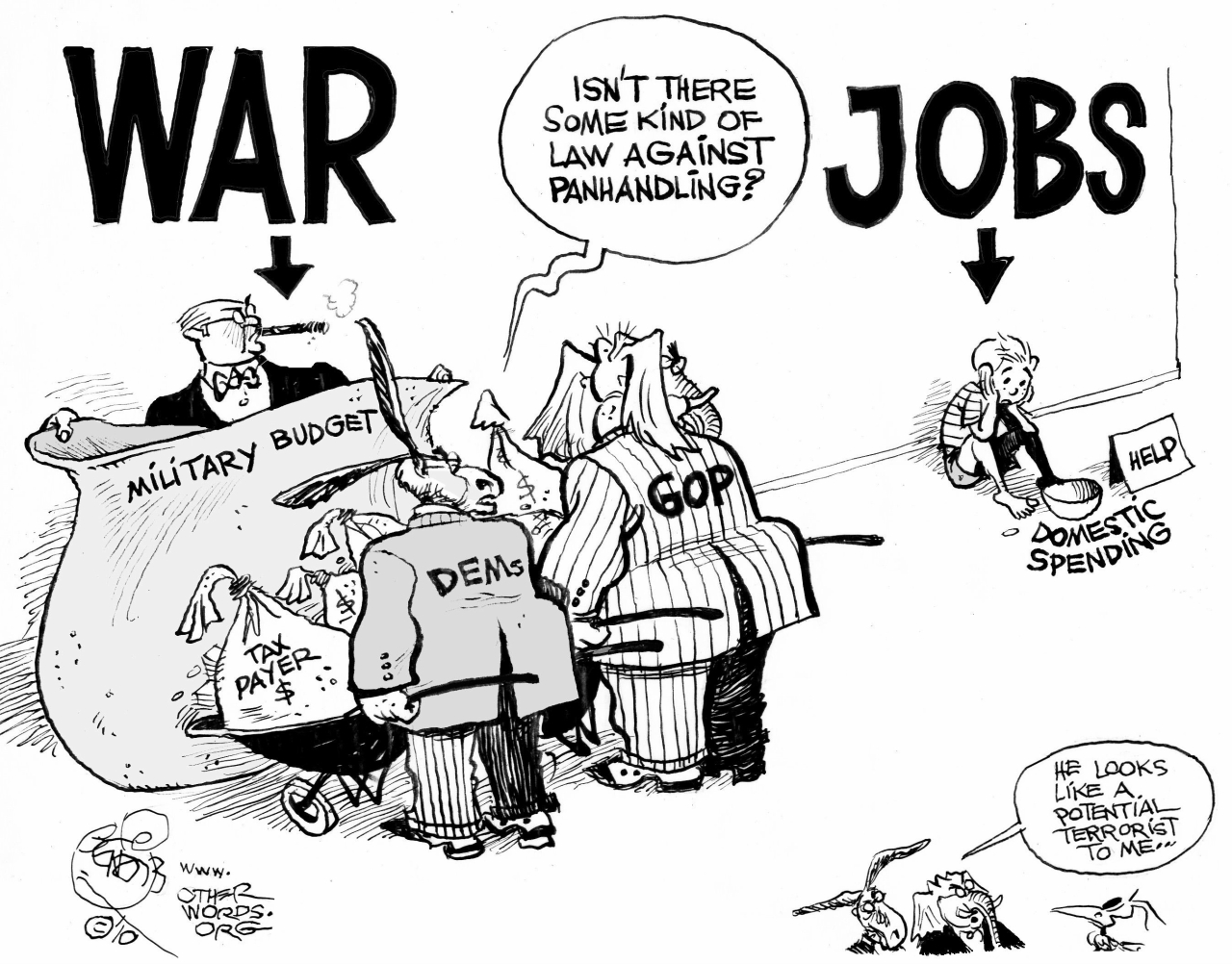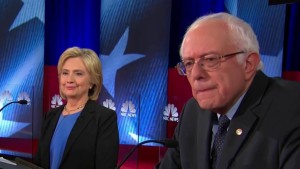U.S. Now Overtly at War Against Russia
NATO Secretary General Jens Stoltenberg announced on February 2nd that he approves of US ‘Defense’ Secretary Ash Carter’s proposal to quadruple US armaments and troops in Europe, against ‘Russian aggression’.
Secretary Carter said earlier that same day, in his announcement of America’s arming for war against Russia:
We are reinforcing our posture in Europe to support our NATO allies in the face of Russia’s aggression. In Pentagon parlance, this is called the European Reassurance Initiative and after requesting about $800 million for last year, this year we’re more than quadrupling it for a total of $3.4 billion in 2017.That will fund a lot of things: more rotational US forces in Europe, more training and exercising with our allies, more preposition and war-fighting gear and infrastructure improvements to support all this.And when combined with US forces already in and assigned to Europe – which are also substantial – all of this together by the end of 2017 will let us rapidly form a highly capable combined arms ground force that can respond across that theater, if necessary.
The US is preparing for an invasion of Russia.
«By the end of 2017» the US will be prepared to invade Russia.

Secretary Carter went on to say:
Russia and China are our most stressing competitors. They have developed and are continuing to advance military system[s] that seek to threaten our advantages in specific areas. And in some case[s], they are developing weapons and ways of wars that seek to achieve their objectives rapidly, before they hope, we can respond.Because of this and because of their actions to date, from Ukraine to the South China Sea, DOD has elevated their importance in our defense planning and budgeting.
Since he is a Secretary of ‘Defense’ instead of a Secretary of Offense, he immediately added:
While we do not desire conflict of any kind with either of these nations – and let me be clear.
That’s all there was to the assertion there; he didn’t finish the sentence, nor even the thought. But in this offhanded way, he did at least try to give the impression that the US is never an aggressor – for example: that, though the US is expanding NATO right up to Russia’s borders, Russia is being the ‘aggressor’ to move troops and weapons up to those borders – up to Russia’s own borders (to counter the US & NATO invasion-threat, of course; but, no: it’s to threaten NATO, if you believe the West).
In the statements by Ash Carter, Barack Obama, and Jens Stoltenberg, that’s ‘Russian aggression’. In the allegory by George Orwell, 1984, America’s rhetoric is called simply «Newspeak».
It’s as if during the Soviet Union (i.e., before 1991), when Nikita Khrushchev was the aggressor in 1962 and John Kennedy was the defender (against Soviet missiles in Cuba), Khrushchev had refused to yield and said that Soviet nuclear missiles near the US had only a defensive, not offensive, purpose (no purpose for a blitz nuclear attack against the US too fast for the US to be able to get its missiles launched in retaliation). Kennedy said no to that idea then, and Putin says no to that idea (right on Russia’s very borders) now. The US, in post-Soviet, post-communist, Russia, has turned around and become the aggressor – against the now democratic nation of Russia. (And Putin’s approval-rating from the Russian people is at least 80%, whereas Obama’s approval-rating from the American people is near 50%.)
We’ve switched roles. The US has turned to dictatorship, while Russia has turned to democracy. It’s a super-switcheroo. ‘Democracy’ in the US has become, during recent decades, the election of Presidents and congresspersons who were campaigning on lies, and who then actually delivered more like the opposite, as their actual governmental policies.
A good example of this is that when Mr Obama was campaigning for re-election to the Presidency in 2012, he outright mocked his opponent Mitt Romney’s asserting (2:22 on the video) that, «Russia, this is without question our number one geopolitical foe». But the moment that Obama became re-elected, Obama activated a 1957 CIA plan to overthrow Russia’s ally Bashar al-Assad in Syria, and a more-recent CIA and State Department plan to overthrow the actually neutralist Ukrainian President Viktor Yanukovych in Ukraine and replace him with a rabidly anti-Russian government. The head of Stratfor called it «the most blatant coup in history,» and it was an extremely bloody coup, followed by a civil war – and economic collapse, and even more corruption there. In addition, Obama carried out a French plan to overthrow Russia’s ally Muammar Gaddafi in Syria.
All of these plans were strongly welcomed by Russia’s main oil-market competitors, all of them fundamentalist Sunni Arab financial backers of jihadists: the Saud royal family of Saudi Arabia, and the Thani royal family of Qatar, as well as the Sabah royal family of Kuwait, and the six royal families of the UAE. Those royals own most of the world’s oil, and only Russia and its ally Iran are even in that league. All of those Sunni Arab royal families (especially the Sauds) are the main financial backers of al-Qaeda, ISIS, and other jihadist groups, all of which are fundamentalist Sunni terrorist groups, which especially aim to exterminate all Shiites – and Shiites just happen to be supported by Russia. (The US overthrew the democratically elected progressive President of Iran and installed the tyrannous Shah, back in 1953, and Iranians have loathed the US government ever since.)
President Obama, in his second Administration, ceased his previous focus against the Sunni group al-Qaeda, and refocused US policy to be against Russia, even to the extent of supporting al-Qaeda, ISIS, and other rabidly anti-Russian Sunni groups, who are driving millions of refugees from Syria, Libya, etc., into Europe. (Of course, Obama’s rhetoric remains against those Sunni extremists – just as his rhetoric was against Romney’s policies that Obama ended up imposing in his second term.) All of those terrorist groups are allied with the Sunni Arab royal families against Shiite-led Iran, and Shiite-allied Syria.
The fundamentalist Sunni beliefs of the Arab royal families have, since at least 1744, been committed to exterminating all Shiites. Now that Shiite and Shiite-allied nations are supported by Russia, the United States is more overtly than ever preparing to conquer Russia, for the benefit of the aristocracies of America, and of Arabia.
And there are many other examples of President Obama’s policies exposing him to be an example of «the election of Presidents and congresspersons who were campaigning on lies, and who then actually delivered more like the opposite, as policies», such as his claiming to champion democracy in Syria when his actual demand regarding Syria is to block democracy there because all the evidence shows that it would result in an overwhelming electoral victory for Bashar al-Assad. And another example is Obama’s support of the right of self-determination of peoples regarding Scotland and Catalonia, but not in Crimea, nor in Donbas, nor in Abkhazia. The United Nations supports the right of self-determination of peoples everywhere, and Ban Ki-moon has clearly stated that America’s demand for the removal of Bashar al-Assad from power is alien to the principles upon which the United Nations was founded.

So: the US regime is moving toward a nuclear confrontation against Russia, as a ‘defensive’ measure against ‘Russian aggression’.
Obama had previously used ‘The Iran Threat’ as his basis for placing anti-ballistic missiles in European countries near and bordering Russia, but he can’t do that anymore and so he’s now doing it with what had been his actual motive all along: to ‘protect’ Europe from ‘Russian aggression’.
What had led up to Romney’s assertion that Russia «is without question our number one geopolitical foe» was his having been baited by CNN to comment upon a private statement that Obama had made to Dmitry Medvedev, saying that, «This is my last election. After my election I have more flexibility». CNN didn’t say what that matter was about, but simply baited Romney with it for Romney to play the Red-scare Joseph R. McCarthy role, which Romney did (McCarthy, of the anti-communist witch-hunts, being a Republican hero). Reuters explained what the context was, what Obama had been replying to there: Putin’s concern was that placing anti-ballistic missiles (ABMs) in Europe to strip Russia of its ability to retaliate against a first-strike from NATO forces in Europe, was unacceptable. Obama was telling that he would «have more flexibility» against Republican hate-mongers against Russia, after he’d win re-election. It was just another lie from him. He won re-election and turned out to be actually a black Mitt Romney. In fact, Obama had spent his entire first term deceiving the entire world to think that he rejected Republicans being «stuck in a Cold War mind warp», as he put it. It was all merely an act for him. He should be in Hollywood, not in the White House.
If this cat gets much farther out of the bag, it’s not just the cat but the whole world that will be lost.
The first priority for a President Bernie Sanders, or for a President Donald Trump, must be to undo the Bush-Obama foreign policy, because it certainly won’t be undone by a President Hillary Clinton, nor by a President Ted Cruz, nor by a President Marco Rubio – and this is the main thing that’s at stake in the current US Presidential contest. What’s at stake here is nothing less than whether civilization even survives another few decades. That’s now seriously at question, and trillions are being spent right now to bring it to an end.
This isn’t kid’s stuff. And it’s not really rocket science, either. It’s instead a fundamental and stark moral issue, that’s staring the entire world in the face right now. And it hasn’t got a thing to do with religion, but it has a lot to do with restoring democracy where it has been eroded down to virtually nothing.
Democracy requires a truthfully informed public. And that’s the truth. Let’s get with it, before it’s too late to do so.
The likelihood of a nuclear war has never been higher than it is now, except perhaps for the Cuban Missile Crisis, but the entire world was being informed about that then, and what about the situation now? This time around, the situation is perhaps even more serious. The urgency of the situation is critical.
Is this the type of ‘news’ coverage we’ll continue to get on the world’s top matter – that Russia is invading our territory, when we’re actually constantly invading (and perpetrating coups) in theirs, and they’re actually doing what they must do in order to defend the Russian people themselves from NATO?
End NATO now. Or else it (and its cooperative ‘news’ media in the West) will end us all. The whole expansion of NATO up to Russia’s borders has been based upon US President George Herbert Walker Bush’s lie to Mikhail Gorbachev in 1990, which induced Gorbachev to end not just the Soviet Union but their equivalent of NATO, the Warsaw Pact – all of which Russia did do in 1991. Russia has consistently fulfilled its part of the bargain, but GHWB’s vicious violation of his promise has been consistently followed, adhered to, by American Presidents ever since. The deceit goes on, and the US is now heading towards culminating the most dangerous lie in world history.
Eric Zuesse, Investigative historian Eric Zuesse is the author, most recently, of They’re Not Even Close: The Democratic vs. Republican Economic Records, 1910-2010 , and of CHRIST’S VENTRILOQUISTS: The Event that Created Christianity .
The original source of this article is Strategic Culture Foundation
Copyright © Eric Zuesse, Strategic Culture Foundation, 2016




